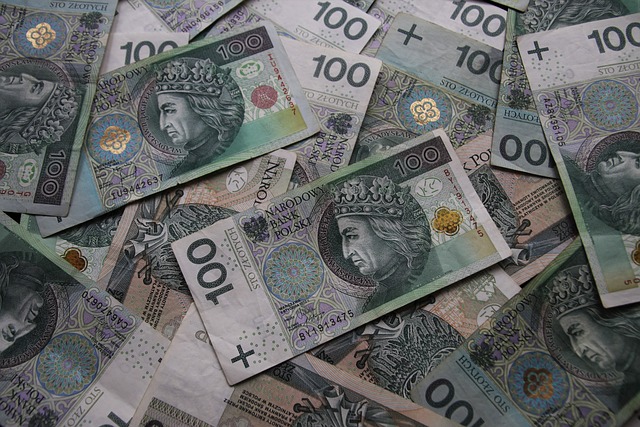Barter relies on direct exchange of goods, lacks standardized value; Money economy uses currency, streamlines trade, allows specialization, but may lead to inequality.
TL;DR Barter Economy Vs. Money Economy
In the early stages of human civilization, barter economies relied on direct exchange of goods and services without currency, fostering community cooperation. This system faced challenges like the double coincidence of wants. The evolution led to the introduction of money economies, using universally accepted mediums of exchange. Money economies, with advantages like efficiency and division of labor, also bring drawbacks such as economic inequality and potential overconsumption.
Barter systems encourage interpersonal connections but lack standardization. Both systems have distinct characteristics, influencing societal functions and trade mechanisms.
Definition and history of barter economy

In the early days of human civilization, before the advent of money as we know it today, people relied on a system known as barter to exchange goods and services. Barter economy refers to a system in which individuals trade one good or service for another without using any form of currency.
The concept of bartering is believed to have originated thousands of years ago when communities began forming and individuals realized they had different skills and resources that could be mutually beneficial. For example, someone who was skilled at hunting might trade some meat with a farmer in exchange for crops.
Barter economies varied greatly depending on the region and time period. In some cases, direct exchanges would occur between two parties involved in the transaction. However, in more complex societies where multiple goods were being traded, intermediary agents emerged to facilitate these transactions.
Bartering allowed people to acquire essential items they needed for survival or desired luxury goods that enhanced their quality of life. It fostered cooperation among communities and encouraged specialization in certain trades or skills.
While barter economies served their purpose during simpler times, they also had limitations. One major challenge was the problem of double coincidence of wants – both parties involved in a transaction had to desire what the other party was offering at the same time.
As societies advanced and became more interconnected, it became apparent that there was a need for a more efficient medium of exchange beyond bartering alone. This realization paved the way for the introduction of money economies.
Definition and history of money economy

The concept of a money economy has been an integral part of human civilization for centuries. In simple terms, a money economy is a system in which goods and services are exchanged using a universally accepted medium of exchange – money.
The history of the money economy can be traced back to ancient societies where various forms of currency were used. For instance, in Mesopotamia, clay tablets were used as early forms of accounting records. The use of precious metals like gold and silver also became common mediums of exchange in many civilizations.
Over time, coins made from these metals started to circulate as official currency. This marked a significant shift towards the establishment of formal monetary systems. In later years, paper currency emerged as a more convenient form and was backed by the value held in reserves.
Today, we live in an era where digital transactions dominate our daily lives. Electronic transfers and cryptocurrencies have revolutionized the way we perceive money and conduct financial transactions.
The evolution and widespread acceptance of money have provided numerous advantages to society – facilitating trade across borders, enabling economic growth through investment opportunities, and promoting specialization among individuals or businesses.
However, it is important to note that there are also disadvantages associated with a money economy. Issues such as inflation, wealth disparity, and financial crises often come into play due to factors like government policies or market fluctuations.
The concept of a money economy has significantly shaped human history by providing a standardized means for exchanging goods and services. While it offers several benefits for commerce and economic development, its impact on society should be carefully managed to mitigate potential drawbacks.
Barter Economy Vs. Money Economy – Key differences
| Characteristic | Barter Economy | Money Economy |
|---|---|---|
| Medium of Exchange | Direct exchange of goods and services | Currency acts as a standardized medium of exchange |
| Value Measurement | Goods traded based on perceived value | Standardized currency provides a universally accepted measure of value |
| Double Coincidence of Wants | Requires both parties to desire each other's offerings simultaneously | Eliminated by using money; parties can buy what they need when they need it |
| Flexibility | Goods and services exchanged based on negotiation and agreement | Simplifies trading, providing flexibility through a common medium |
| Division of Labor | Limited specialization as individuals produce what they need | Promotes specialization as people can earn money and purchase desired goods |
| Efficiency | Less efficient due to challenges in finding suitable trade partners | More efficient, streamlining transactions and promoting economic growth |
| Trust and Regulation | Relies on trust among participants; no standardized regulation | Incorporates legal tender laws, ensuring trustworthiness and standardization |
| Inequality | Potentially less impacted by economic inequality | May contribute to economic inequality based on wealth accumulation |
| Historical Usage | Common in early human civilizations and smaller communities | Evolved as societies advanced, becoming the predominant economic system |
Advantages and disadvantages of barter economy
Advantages of Barter Economy
- Direct Interaction: Bartering fosters direct communication and interaction between individuals involved in the exchange, building relationships and strengthening social bonds within communities.
- Flexibility in Transactions: Bartering allows for flexibility in transactions, as goods or services can be exchanged based on their perceived value. This flexibility opens up possibilities for negotiation and finding mutually beneficial agreements.
- No Need for Standardized Value: In a barter economy, there is no need for a standardized unit of value. Goods are directly traded, and the exchange is based on mutual agreement, providing room for subjective valuation.
Disadvantages of Barter Economy
- Lack of Standardized Value: One major drawback is the absence of a standardized unit of value. Determining fair exchange rates or ensuring equal value in each transaction can be challenging.
- Difficulty in Finding Trading Partners: The process of finding suitable trading partners can be time-consuming and challenging, especially in larger or less interconnected communities. Matching specific needs with available resources within a limited network can be a barrier.
- Limited Specialization: Barter economies may limit specialization as individuals need to possess or produce everything they require. This lack of specialization can hinder the development of certain skills or industries.
Advantages and disadvantages of money economy
Advantages of Money Economy
- Efficiency in Transactions: Money economies are more efficient in facilitating transactions. The use of currency streamlines trade, allowing individuals to easily exchange goods and services without the constraints of direct barter.
- Promotes Specialization and Division of Labor: Money economies enable specialization as people can focus on specific skills or industries. Individuals can then use their earnings to purchase other necessary goods or services, promoting division of labor and efficiency.
- Flexibility in Saving and Investing: Money provides greater flexibility in saving and investing. Instead of accumulating physical items through bartering, individuals can save money in financial institutions or invest in assets, contributing to economic growth.
Disadvantages of Money Economy
- Economic Inequality: Money economies can contribute to economic inequality. Those with more wealth have opportunities for investments and earning interest, while those with limited means may struggle to meet basic needs.
- Materialism and Overconsumption: The reliance on money as a medium of exchange may lead to overconsumption and materialism within society. Constant pursuit of wealth may overshadow other values such as community well-being or environmental sustainability.
- Dependence on Currency Stability: The stability of a money economy depends on the stability of the currency. Factors like inflation, government policies, or market fluctuations can impact the economy, leading to financial crises.
Image Credits
Featured Image By – 🌸♡💙♡🌸 Julita 🌸♡💙♡🌸 from Pixabay
Image 1 By – ReStyled Living from Pixabay
Image 2 By – PublicDomainPictures from Pixabay









